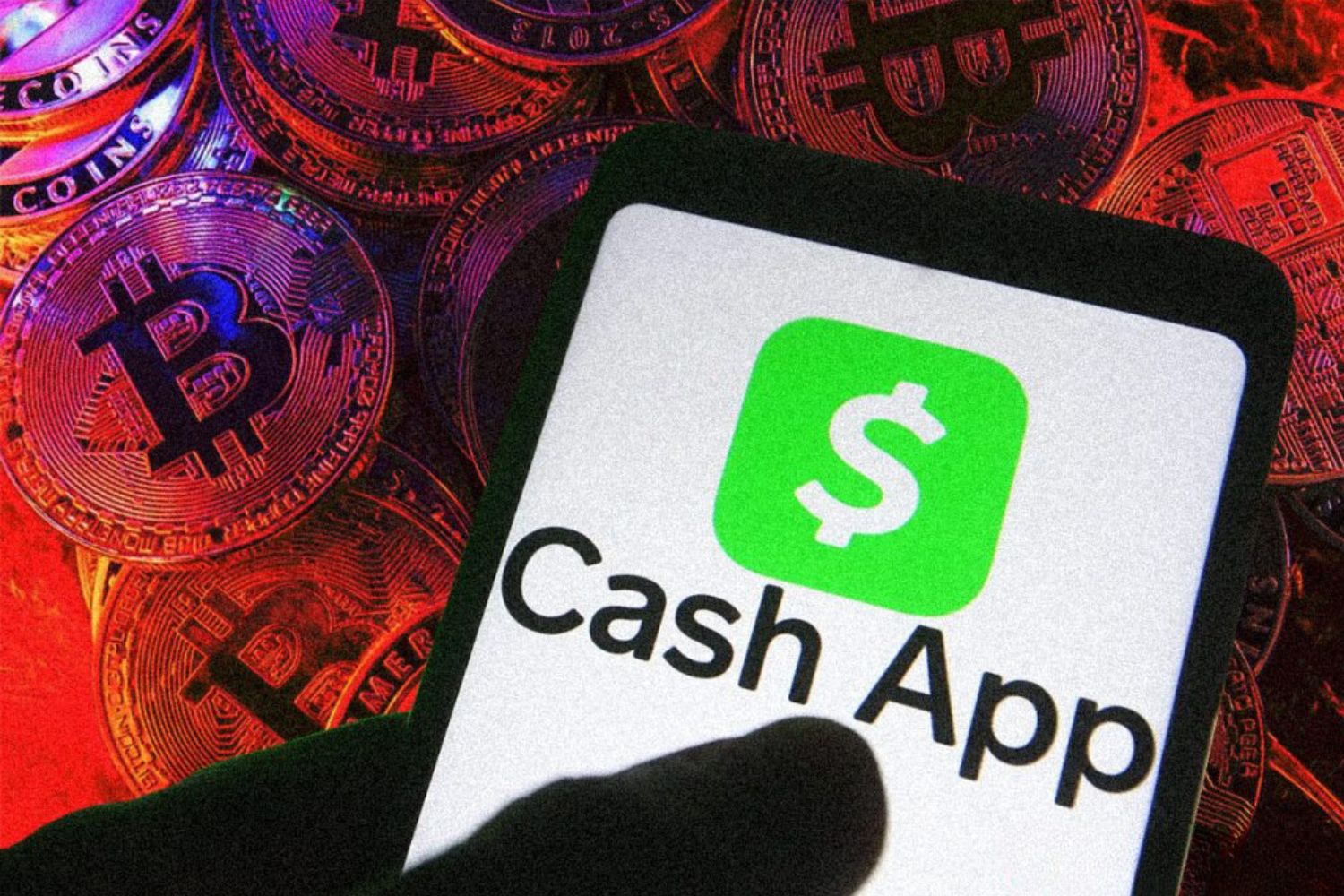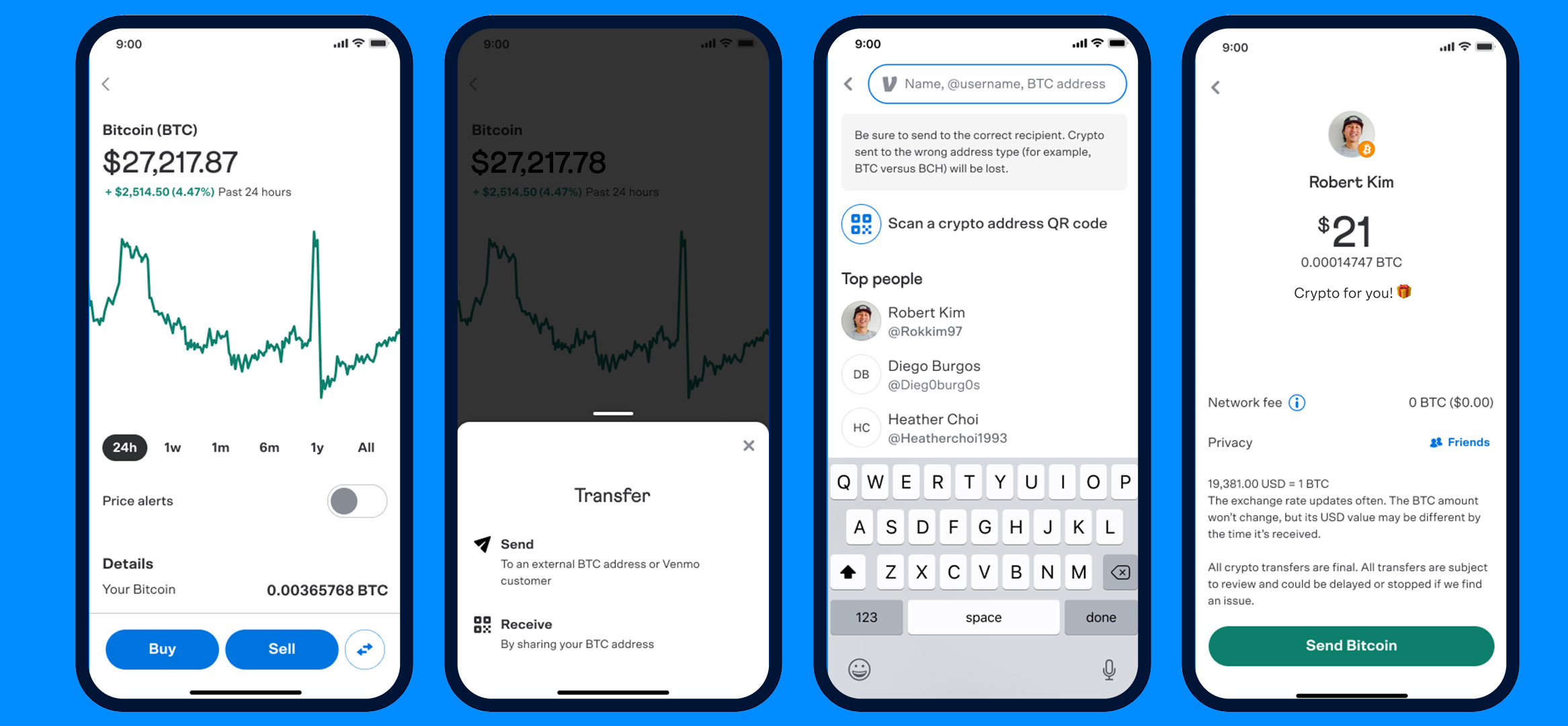Introduction
Welcome to the exciting world of cryptocurrencies, where digital currencies have captured the imagination of millions of users around the globe. Bitcoin and Bitcoin Cash, two prominent cryptocurrencies, have been in the spotlight since their inception. While they share some similarities, they also have distinct differences that set them apart.
Bitcoin, introduced in 2009 by the mysterious Satoshi Nakamoto, is the first and most renowned cryptocurrency. Built on a decentralized system known as blockchain, Bitcoin allows users to make peer-to-peer transactions without the need for intermediaries like banks or governments. Its popularity has grown over the years, becoming a sought-after investment and a means of payment for various goods and services.
Bitcoin Cash, on the other hand, is a cryptocurrency that emerged as a result of a hard fork from the original Bitcoin in 2017. The main motivation behind Bitcoin Cash was to address some of the scaling issues faced by Bitcoin, such as slow transaction times and high fees. By increasing the block size, Bitcoin Cash aims to enhance the speed and efficiency of transactions.
The purpose of this article is to explore the key differences between Bitcoin and Bitcoin Cash, shedding light on their distinct features and functionalities. By understanding the nuances between these two cryptocurrencies, users can make informed decisions and navigate the ever-evolving landscape of digital currencies.
What is Bitcoin?
Bitcoin, often referred to as the pioneer of cryptocurrencies, is a decentralized digital currency that operates on a peer-to-peer network. It was created by an anonymous individual or group known as Satoshi Nakamoto in 2009. One of the key aspects of Bitcoin is its reliance on blockchain technology, which ensures transparency, security, and immutability.
Bitcoin can be thought of as ‘digital gold’ as it is not controlled by any central authority, such as a government or financial institution. Instead, the network is maintained by a decentralized community of users known as miners. These miners validate transactions and add them to the blockchain, which serves as a public ledger of all Bitcoin transactions.
The issuance of new Bitcoins occurs through a process called mining, where powerful computers perform complex mathematical calculations to validate transactions. As a reward for their efforts, miners are granted newly minted Bitcoins. This process is designed to be resource-intensive and gradually becomes more challenging, ensuring a limited and predictable supply of Bitcoins over time.
Bitcoin offers several advantages over traditional financial systems. It allows for fast and secure transactions, typically settled within minutes, irrespective of the geographical distance between the sender and the recipient. Additionally, Bitcoin transactions are pseudo-anonymous, meaning that while transaction details are recorded on the blockchain, the identities of the parties involved are not directly linked.
Furthermore, Bitcoin has gained attention as a store of value and speculative investment. Its limited supply, deflationary nature, and global accessibility have attracted investors seeking a hedge against traditional financial markets. Many cryptocurrency exchanges now facilitate the buying and selling of Bitcoin, making it accessible to a broader audience.
What is Bitcoin Cash?
Bitcoin Cash (BCH) is a cryptocurrency that emerged as a result of a hard fork from the original Bitcoin in August 2017. It was created to address the scalability issues faced by Bitcoin, namely slow transaction times and high fees. By increasing the block size limit, Bitcoin Cash aims to provide faster and more affordable transactions.
Similar to Bitcoin, Bitcoin Cash operates on a decentralized peer-to-peer network using blockchain technology. It retains many of the fundamental principles of Bitcoin, including the ability to send and receive digital payments without relying on intermediaries like banks.
One of the key differences between Bitcoin and Bitcoin Cash is the block size limit. Bitcoin has a block size limit of 1MB, which restricts the number of transactions that can be processed per block. Bitcoin Cash, on the other hand, increased the block size limit to 8MB, effectively increasing the transaction capacity of the network.
This larger block size allows Bitcoin Cash to handle a higher volume of transactions, resulting in faster confirmation times and lower transaction fees. It aims to provide a seamless and efficient payment experience, making it more suitable for everyday transactions.
Despite the block size increase, Bitcoin Cash preserves much of the underlying technology and functionality of Bitcoin. It uses the same cryptographic principles, mining algorithm (SHA-256), and has a similar issuance rate of new coins through mining.
Bitcoin Cash has gained traction among cryptocurrency enthusiasts and businesses that prioritize fast and inexpensive transactions. It is accepted by an increasing number of merchants as a form of payment, thus providing more practical utility than some other cryptocurrencies.
However, it is worth noting that Bitcoin Cash has faced criticism and debate within the cryptocurrency community. Some argue that larger block sizes could potentially compromise the decentralized nature of the blockchain and make it more difficult for individual users to participate in the network as full node operators.
Nonetheless, Bitcoin Cash remains a significant player in the cryptocurrency market, offering an alternative vision of how digital currencies can be utilized for everyday transactions.
Key Differences Between Bitcoin and Bitcoin Cash
While Bitcoin and Bitcoin Cash share some similarities, they also have distinct differences that set them apart. Here are the key differences:
- Block Size: One of the major differences between Bitcoin and Bitcoin Cash is the block size. Bitcoin has a block size limit of 1MB, which restricts the number of transactions that can be included in a block. Bitcoin Cash increased this limit to 8MB, enabling more transactions to be processed per block.
- Transaction Fees: Due to the larger block size, Bitcoin Cash generally has lower transaction fees compared to Bitcoin. With the increased capacity, Bitcoin Cash can accommodate a greater number of transactions, resulting in reduced congestion and lower fees for users.
- Mining Algorithm: Both Bitcoin and Bitcoin Cash use the same mining algorithm, SHA-256. This means that they can be mined using similar hardware, such as ASICs (Application-Specific Integrated Circuits). Miners play a crucial role in validating transactions and adding them to the blockchain in both networks.
- Community Support: Bitcoin and Bitcoin Cash have different developer and user communities. While Bitcoin has a larger and more established community, Bitcoin Cash has gained its own following and has attracted supporters who believe in the larger block size vision and faster, more affordable transactions.
- Segregated Witness (SegWit): Bitcoin and Bitcoin Cash have different approaches to the implementation of Segregated Witness, a technology that improves the efficiency of transaction processing. Bitcoin adopted SegWit in 2017, separating transaction data from signature data to free up space in blocks. Bitcoin Cash, however, did not adopt SegWit and opted for the larger block size as a scaling solution instead.
- Market Perception: Bitcoin, being the first cryptocurrency and having the largest market capitalization, is often seen as the face of the cryptocurrency market. Bitcoin Cash, on the other hand, is considered an alternative cryptocurrency with its own distinct use cases and community.
These differences highlight the contrasting visions and approaches of Bitcoin and Bitcoin Cash. Bitcoin aims to be a store of value and a medium of exchange, while Bitcoin Cash prioritizes faster and more affordable transactions for everyday use.
Blockchain Size and Scalability
Blockchain size and scalability are important factors in the world of cryptocurrencies, as they directly impact the transaction capacity and efficiency of a network. Let’s explore how Bitcoin and Bitcoin Cash differ in terms of blockchain size and scalability.
Bitcoin, being the first cryptocurrency, has been operating for over a decade, accumulating a substantial blockchain size. The current size of the Bitcoin blockchain is several hundred gigabytes, and it continues to grow as more transactions are added to the network. The larger blockchain size has some implications for scalability.
Due to the 1MB block size limit, Bitcoin can only process a limited number of transactions per block, which can lead to network congestion during periods of high transaction volume. This congestion results in longer confirmation times and higher transaction fees.
Bitcoin Cash, on the other hand, increased the block size limit to 8MB, significantly expanding the transaction capacity of the network. With larger blocks, Bitcoin Cash can process more transactions per block, thus reducing the likelihood of congestion and lowering transaction fees.
The larger block size in Bitcoin Cash allows more transaction data to be stored within a single block, thereby increasing the scalability and ability to handle higher transaction volumes. As a result, Bitcoin Cash offers a faster and more efficient user experience for day-to-day transactions.
However, it is worth noting that the increased block size also contributes to a faster growth rate of the blockchain. Over time, this could lead to larger storage requirements and potentially limit the ability of individual users to participate as full node operators, as the blockchain size continues to expand.
Both Bitcoin and Bitcoin Cash are actively exploring additional scalability solutions in order to address these challenges. Bitcoin has implemented technologies like Segregated Witness (SegWit) and the Lightning Network, which allow for off-chain transactions and increase the overall transaction capacity. Bitcoin Cash, on the other hand, focuses on increasing the on-chain block size to facilitate direct peer-to-peer transactions.
The blockchain size and scalability considerations of Bitcoin and Bitcoin Cash underscore the ongoing debate within the cryptocurrency community regarding the best approach to achieve efficient and scalable transaction processing. Both cryptocurrencies offer distinctive solutions to address the scalability challenges while aiming to provide seamless and reliable transaction experiences for their respective user bases.
Transaction Fees
Transaction fees are an essential aspect of any cryptocurrency network, as they incentivize miners to validate transactions and secure the network. When comparing Bitcoin and Bitcoin Cash, there are distinct differences in the transaction fees associated with each cryptocurrency.
Bitcoin, with its 1MB block size limit, often experiences high transaction fees during periods of network congestion. The limited space available in each block means that transactions have to compete for inclusion, and users often end up paying higher fees to prioritize their transactions.
During periods of high demand, the transaction fees in the Bitcoin network can spike significantly. This has led to debates and discussions about the scalability of Bitcoin and the impact of high fees on its viability as a digital currency for everyday transactions.
Bitcoin Cash, with its 8MB block size limit, offers a different fee structure. The increased block size allows for a higher number of transactions to be included in each block, reducing the competition for block space and subsequently lowering transaction fees.
As a result, Bitcoin Cash generally has lower transaction fees compared to Bitcoin. In times of network congestion, Bitcoin Cash can handle a greater volume of transactions without the fees significantly increasing.
Lower transaction fees make Bitcoin Cash a more viable option for microtransactions and everyday use. Businesses and individuals seeking to send or receive smaller amounts of value may find Bitcoin Cash more cost-effective for their needs.
It is worth noting that transaction fees in both Bitcoin and Bitcoin Cash are not fixed and can vary depending on factors such as network demand, transaction size, and the urgency with which users want their transactions to be included in a block.
Both cryptocurrencies continue to explore and implement scalability solutions to improve transaction throughput and lower fees. Bitcoin has adopted technologies like Segregated Witness (SegWit) and the Lightning Network to enable faster and cheaper transactions off-chain. Bitcoin Cash, on the other hand, emphasizes increasing on-chain block size to accommodate more transactions and maintain lower fees.
The transaction fee structure and associated costs are important considerations when choosing between Bitcoin and Bitcoin Cash, depending on the specific use case and transaction requirements of the user.
Mining Algorithm
The mining algorithm is a crucial component of any cryptocurrency network, as it determines how new coins are created and how transactions are validated. When comparing Bitcoin and Bitcoin Cash, they both utilize the same mining algorithm, known as SHA-256.
SHA-256 (Secure Hash Algorithm 256-bit) is a cryptographic hash function that ensures the integrity and security of the blockchain. It requires miners to perform complex mathematical calculations on transaction data, and the resulting hash must meet specific criteria in order to add a new block to the blockchain.
Miners play a vital role in the cryptocurrency ecosystem by dedicating computational power to solving these calculations. Their efforts contribute to the security and decentralization of the network.
Bitcoin was the first cryptocurrency to adopt SHA-256 as its mining algorithm. This algorithm has proven to be highly secure and efficient, making it the industry standard for many cryptocurrencies, including Bitcoin Cash.
Both Bitcoin and Bitcoin Cash can be mined using specialized hardware, such as ASICs (Application-Specific Integrated Circuits). These hardware devices have been specifically designed to perform the SHA-256 calculations efficiently, maximizing mining profitability.
While Bitcoin and Bitcoin Cash use the same mining algorithm, there is a key difference in the mining difficulty adjustment. Bitcoin adjusts its mining difficulty every 2016 blocks, or approximately every two weeks, to maintain a target block time of 10 minutes. Bitcoin Cash, however, adjusts its difficulty every block, ensuring a more responsive and adaptive mining network.
The shared use of the SHA-256 algorithm means that miners can switch between mining Bitcoin and Bitcoin Cash relatively easily. Depending on market conditions and mining profitability, miners may allocate their resources to the cryptocurrency that provides the greatest potential return on investment.
The mining algorithm of SHA-256 ensures the integrity and security of both the Bitcoin and Bitcoin Cash networks. It serves as the foundation for the decentralized validation of transactions and the creation of new coins, rewarding miners for their computational efforts.
Community Support
The community surrounding a cryptocurrency plays a crucial role in its development, adoption, and overall success. When comparing Bitcoin and Bitcoin Cash, there are notable differences in terms of community support and the distinct visions embraced by each community.
Bitcoin, as the first and most well-established cryptocurrency, has a large and diverse community of developers, miners, investors, and users. This community has grown and evolved over the years, contributing to the development of the Bitcoin protocol, its infrastructure, and the wider ecosystem.
The Bitcoin community is known for its commitment to principles such as decentralization, censorship resistance, and financial sovereignty. It aims to position Bitcoin as a store of value and a viable alternative to traditional financial systems.
Bitcoin supporters often view it as a digital gold and a long-term investment, emphasizing its scarcity, limited supply, and potential for value appreciation over time. The Bitcoin community advocates for maintaining the core features and principles of the original Bitcoin network while exploring scalability solutions to improve transaction throughput and reduce fees.
Bitcoin Cash emerged with its own community after a contentious hard fork from Bitcoin in 2017. The community behind Bitcoin Cash shares the fundamental values of peer-to-peer electronic cash and aims to prioritize fast, low-cost transactions as a means of everyday payment.
Bitcoin Cash supporters believe that increasing the block size is a necessary step in achieving widespread adoption and usability. They argue that larger block sizes will facilitate faster transaction confirmation times and lower fees, making Bitcoin Cash more attractive for small-value, day-to-day transactions.
While the Bitcoin Cash community is smaller compared to the Bitcoin community, it has gained its own following and continues to grow. Businesses and individuals who prioritize fast and affordable transactions have gravitated towards Bitcoin Cash as a viable alternative.
It is important to note that both communities actively contribute to the development and improvement of their respective cryptocurrencies. Each community strives to enhance scalability, security, and usability, albeit with different visions and priorities.
The communities of Bitcoin and Bitcoin Cash often engage in debates and discussions over technical and ideological differences. These discussions contribute to the ongoing evolution of both cryptocurrencies and the broader understanding of the potential of decentralized digital currencies.
Community support is a significant factor in the success of any cryptocurrency, as it drives innovation, adoption, and the overall development of the ecosystem. The diverse perspectives and active involvement of the communities surrounding Bitcoin and Bitcoin Cash help shape the future of these cryptocurrencies in unique ways.
Segregated Witness (SegWit)
Segregated Witness (SegWit) is a technology that was implemented as a solution to some of the scalability challenges faced by Bitcoin. However, Bitcoin and Bitcoin Cash have taken different approaches to the adoption and implementation of SegWit.
In simple terms, SegWit separates the transaction data from the signature data within a Bitcoin transaction, which allows for a more efficient use of block space. By removing the transaction signature data from the main block, SegWit increases the transaction capacity of the Bitcoin network.
Bitcoin adopted SegWit in 2017 after a soft fork, allowing users to take advantage of its benefits. The adoption of SegWit has improved the scalability of Bitcoin by allowing more transactions to be included in each block.
SegWit transactions have witnessed increased adoption over time, providing faster confirmation times and lower transaction fees compared to non-SegWit transactions. It has also paved the way for second-layer solutions, such as the Lightning Network, which enables off-chain transactions and further enhances Bitcoin’s scalability.
On the other hand, Bitcoin Cash has chosen not to adopt SegWit. Instead, the Bitcoin Cash community opted for a different solution to improve scalability: increasing the block size limit. The larger block size was seen as a more direct approach to accommodating a higher volume of transactions per block.
Bitcoin Cash supporters argue that the larger block size allows for more straightforward, on-chain scaling without the need for second-layer solutions. However, this increased block size comes with potential drawbacks, such as a faster-growing blockchain and potential challenges in maintaining network decentralization.
While Bitcoin and Bitcoin Cash have chosen different paths to address scalability, it is important to note that SegWit adoption does not inherently make one cryptocurrency better than the other. The decision to adopt or reject SegWit depends on the specific goals and philosophies of each cryptocurrency’s community.
Overall, Segregated Witness has played a significant role in enhancing the scalability and transaction capacity of Bitcoin. Its adoption has resulted in improved efficiency and lower transaction fees for Bitcoin users. Meanwhile, Bitcoin Cash focuses on larger block sizes to achieve scalability goals, catering to users who prioritize fast, on-chain transactions.
The ongoing development and exploration of scaling solutions like SegWit highlight the dynamic nature of the cryptocurrency space and the diverse approaches taken by different communities to address challenges and improve usability.
Future Outlook
The future outlook for both Bitcoin and Bitcoin Cash remains dynamic and uncertain, as the cryptocurrency landscape continues to evolve. Here are some key factors that may shape the future of these cryptocurrencies:
Adoption and Mainstream Integration: Both Bitcoin and Bitcoin Cash have made significant strides in terms of adoption over the years. As more individuals, businesses, and institutions recognize the value and potential of cryptocurrencies, their integration into mainstream financial systems may increase. The ability to use Bitcoin and Bitcoin Cash for everyday transactions and as a means of storing value will play a crucial role in their future success.
Scalability Solutions: Scalability remains a critical issue for both Bitcoin and Bitcoin Cash. While Bitcoin has implemented Segregated Witness (SegWit) and the Lightning Network as scalability solutions, Bitcoin Cash emphasizes increasing the block size. The success and ongoing development of these solutions will impact the future scalability of both cryptocurrencies.
Regulatory Environment: The regulatory landscape surrounding cryptocurrencies is still evolving in many countries. Government regulations and policies can significantly influence the adoption and acceptance of cryptocurrencies like Bitcoin and Bitcoin Cash. Striking a balance between regulatory compliance, consumer protection, and innovation will be crucial for their future growth.
Technological Advancements: The development of new technologies and innovations within the cryptocurrency space can shape the future of Bitcoin and Bitcoin Cash. Improvements in areas such as privacy, security, and user experience can enhance the usability and attractiveness of these cryptocurrencies, driving further adoption and mainstream acceptance.
Market Volatility and Investor Sentiment: Cryptocurrencies, including Bitcoin and Bitcoin Cash, have shown significant price volatility over the years. Investor sentiment, market trends, and macroeconomic factors can affect the value and perception of these cryptocurrencies. The ability to maintain stability and build confidence among investors will play a crucial role in their future outlook.
Competition and Emerging Technologies: Both Bitcoin and Bitcoin Cash face competition from other cryptocurrencies that offer different features and use cases. The emergence of new technologies, such as blockchain interoperability and improved privacy solutions, could pose challenges and opportunities for Bitcoin and Bitcoin Cash to differentiate themselves and stay relevant.
Ultimately, the future of Bitcoin and Bitcoin Cash will depend on a combination of technological advancements, regulatory developments, market demand, and community support. As the cryptocurrency ecosystem continues to evolve, it will be fascinating to see how these two cryptocurrencies adapt and navigate the challenges and opportunities that lie ahead.
Conclusion
The comparison between Bitcoin and Bitcoin Cash reveals the unique characteristics and distinctions of these two prominent cryptocurrencies. While both operate on decentralized networks and share similarities, they differ in terms of block size, transaction fees, community support, scalability solutions, and mining approaches.
Bitcoin, as the first cryptocurrency, has established itself as a digital store of value and a medium for investment. With its focus on maintaining the core principles of decentralization and security, Bitcoin has garnered a wide user base and a robust community that continuously works towards scalability improvements.
Bitcoin Cash, born out of a hard fork from Bitcoin, prioritizes fast and affordable transactions as electronic cash for everyday use. By increasing the block size limit and optimizing transaction fees, Bitcoin Cash aims to provide a seamless payment experience and cater to the needs of businesses and individuals seeking efficient transactions.
Both Bitcoin and Bitcoin Cash have their respective communities actively working towards the advancement and development of their cryptocurrencies. Scalability solutions like SegWit and block size adjustments showcase different approaches to accommodate transaction volumes and improve network efficiency.
As the cryptocurrency ecosystem continues to evolve, the future outlook for Bitcoin and Bitcoin Cash remains dynamic. Factors such as adoption and mainstream integration, regulatory environments, technological advancements, market volatility, and emerging competition will shape the trajectory of these cryptocurrencies.
Regardless of the differences between Bitcoin and Bitcoin Cash, both cryptocurrencies have contributed to the growth and popularity of digital currencies, paving the way for alternative forms of financial transactions and decentralized systems.
As the cryptocurrency landscape continues to mature, it is important for users and investors to thoroughly understand the unique features and functionalities of each cryptocurrency, enabling informed decision-making and participation in this exciting and evolving digital frontier.

























